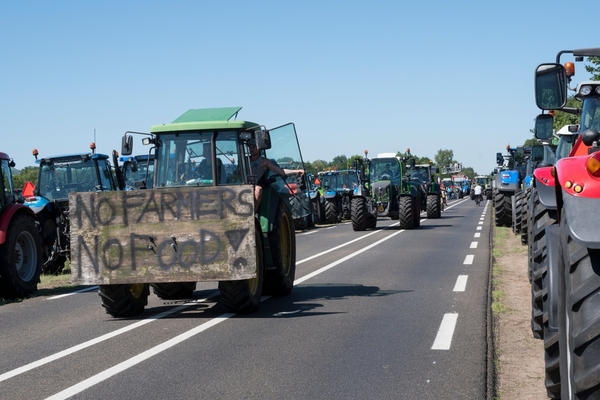As a fourth grade teacher, who taught social studies, I enjoyed teaching about the freedoms that made America a great nation – among these, our free enterprise system where our citizens could grow up to be whatever suited them. I remember using the example that you could even begin your own pizza business in a district that was overrun with pizza places if you thought you had something better or cheaper to offer.
Well, like many of the freedoms we take for granted, we should pay close attention to what is happening in the Netherlands, where farmers are storming town halls, spraying hoses of manure on the buildings and running convoys to tie up traffic on their highways.
Why all the fuss?
Imagine you are running a business and someone from the government tells you that you must reduce your inventory by 50% by 2030? 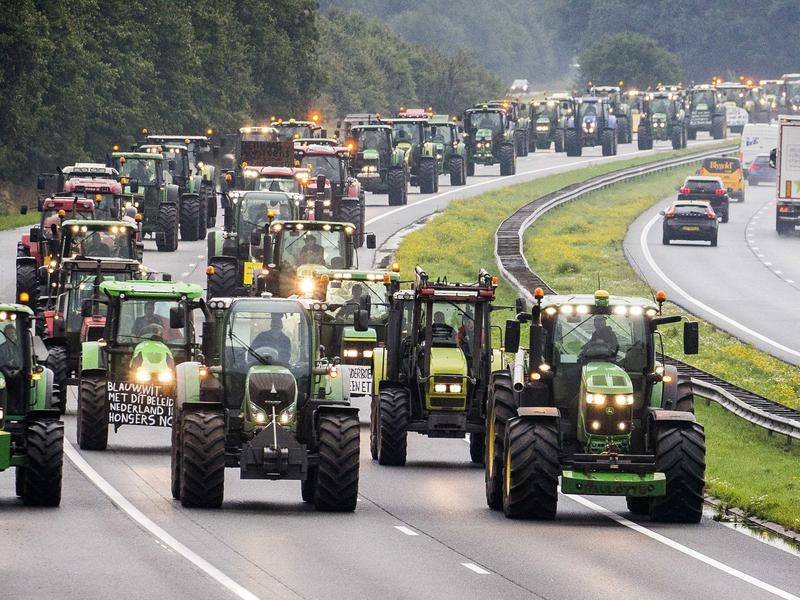 Dutch farmers have been given the word that they must rid their farms of 50% of the emissions of nitrogen oxide and ammonia generated by livestock and labeled as pollutants; the only way to do that is to slaughter 50% of their livestock.
Dutch farmers have been given the word that they must rid their farms of 50% of the emissions of nitrogen oxide and ammonia generated by livestock and labeled as pollutants; the only way to do that is to slaughter 50% of their livestock.
This will lead to farmers going out of business and selling off their land.
A legal analyst, Eva Vlaardingerbroek, who appeared on Tucker Carlson on July 7th, believes the motivation of the Dutch government is to obtain the farmland to house new immigrants.
Senior editor at The Federalist, John Daniel Davidson, wrote on July 29:
“The genesis of the scheme was a court ruling from 2019 that said the Dutch government’s plan for reducing nitrogen emissions violated EU (European Union) laws protecting its Natura 2000 network of supposedly vulnerable and endangered plant and animal habitats — basically a bunch of EU-governed wildlife preserves.”
The map shows the extent of the Natura 2000:
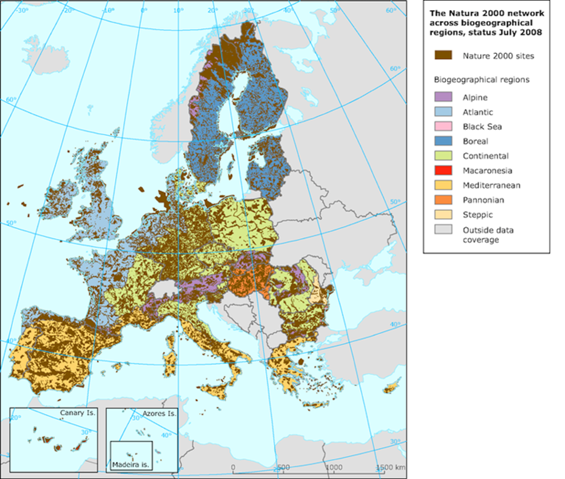
Whether cutting off farmland to “protect” the Natura 2000, or to “steal land” as claimed by Eva Vlaardingerbroek, the result is the same: Dutch farmers will go out of business and citizens will suffer as a result. Already, grocery shelves in the Netherlands have been scavenged for what little produce remains, and global nonprofit organizations (NGOs) are displacing farms with their own distribution centers, deciding the types of food that are produced and how much can be planted.
It's already happening here in the US
Dr. Brooke Miller, President of the U.S. Cattlemen’s Association, explains the looming threat facing the U.S. cattle industry that he says is "...likely to result in a significant increase in the cost of beef, a decline in the overall quality of beef sold in stores, the breakdown of the U.S. cattle industry, and a potential food shortage crisis."
Dr. Miller explains how the U.S. beef industry is controlled by four meat-packing companies, three of which are foreign-controlled, that monopolize the industry by setting arbitrarily low prices for cattle ranchers while gouging wholesalers and retailers with inflated prices for finished beef products. These low purchase prices set by the packagers are driving cattle ranchers out of business by the thousands, placing the future of the industry in serious jeopardy if nothing changes.
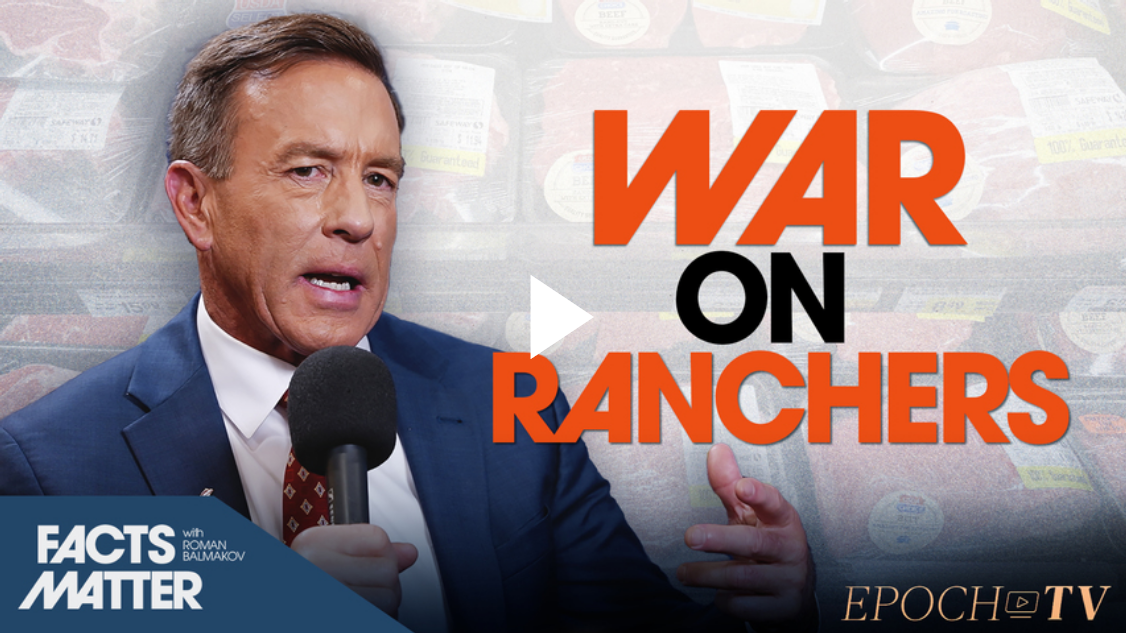
WATCH
'Globalist Monopoly' Owns 85 Percent of
US Cattle Supply Chain, Destroying American Ranchers
Who do these NGOs represent?
The United Nations (UN) and the World Economic Forum (WEF).
By yielding to the whims of globalist organizations, countries fall subject to the consequences of globalism, supplanting national authority.
The domino effect of these global policies are not only a problem for farmers, but also for citizens who rely on them for their sustenance. Beyond the food shortages, this also puts a strain on the production of fertilizer, substantially raising its costs as well.
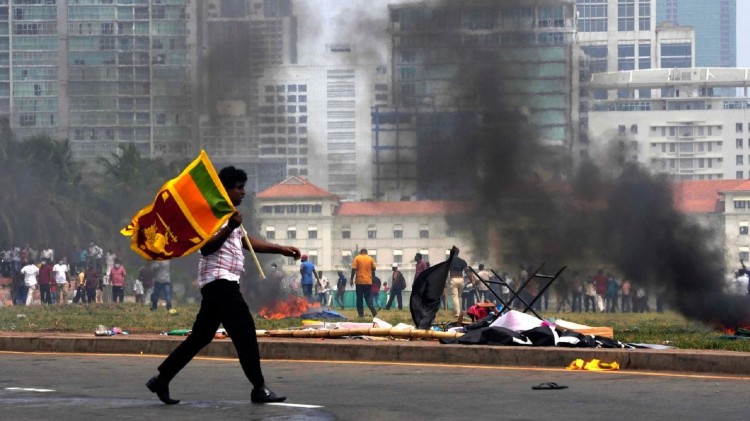 Davidson further explains that Sri Lanka’s recent economic collapse was a result of the forced reduction of fertilizer. The economic upheaval in Sri Lanka led to the ouster of its president earlier this summer.
Davidson further explains that Sri Lanka’s recent economic collapse was a result of the forced reduction of fertilizer. The economic upheaval in Sri Lanka led to the ouster of its president earlier this summer.
So where does the US fit in?
John Davidson’s article highlights the recently passed climate bill in the US Congress – “ … a tax-and-spend cornucopia of $369 billion for wind, solar, geothermal, battery, and other industries over the next decade …” aiming to cut greenhouse emissions by 40% below 2005 levels by 2030, which lines up with the UN’s “Agenda 2030.”
Kudos to the Maryland Farm Bureau
“Animal agriculture and crop production have frequently been the target of climate change discussions and blame. Agriculture needs to be seen as a solution to climate change, instead of being named the problem.”
So opens the article found in the Maryland Farm Bureau page under the topic of climate change. The article goes on to say that farmers now have better seeds that yield more produce and improve biodiversity among other positive contributions. Rather than impose regulations on our farming community, much can be accomplished when we all work together to find solutions.
On the Federal Level
If the Federal Government imposes the reduction of these so-called pollutants on our nation’s farmers, Americans will be in the same stew pot as our Dutch counterparts. It is not only a stab at our free enterprise system but Federal overreach that greatly impacts our ability to obtain the food we need for sustenance.
We Stand with Maryland Farmers
Imagine the impact upon Maryland’s robust farm industry from Cumberland to the Eastern Shore. Imagine the impact upon farming families and the citizens that rely on them for sustenance.
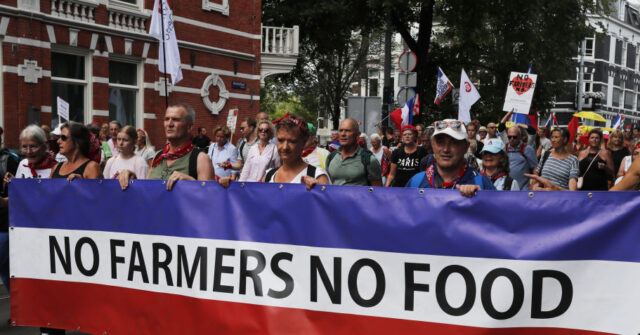
Agenda 2030 agriculture policies will decimate Maryland’s farming industry.
Maryland farmers take great pride in their land, their crops and their livestock. COSAction Maryland stands with farmers who want to work their family farms without arbitrary intervention from an overreaching federal or world government.
It is Agricultural Fair Season across Maryland. When you make your visit to your county or state fair and even to the local farmer’s market, let our farmers know how much you appreciate them.
Let your legislators know exactly where you stand on Agenda 2030 and the 2022 Climate Bill (aka Inflation Reduction Act supported by Senators Cardin & Van Hollen and most Congressman) through the links below:
House of Delegates Environment & Transportation Committee
Senate Education, Health & Environment Committee
The Convention of States Resolution is rapidly gaining ground in America. Article V of our Constitution allows for a Convention of States, where a limit on federal overreach as well as term limits and fiscal responsibility can be proposed and adopted by the state legislatures.
Find out more about this powerful tool that can be wielded by our states. If you want to help influence your state legislators to call for a convention, sign the petition asking them to call for a Convention of States. Get involved in the Convention of States movement that is sweeping state legislatures across our nation.

